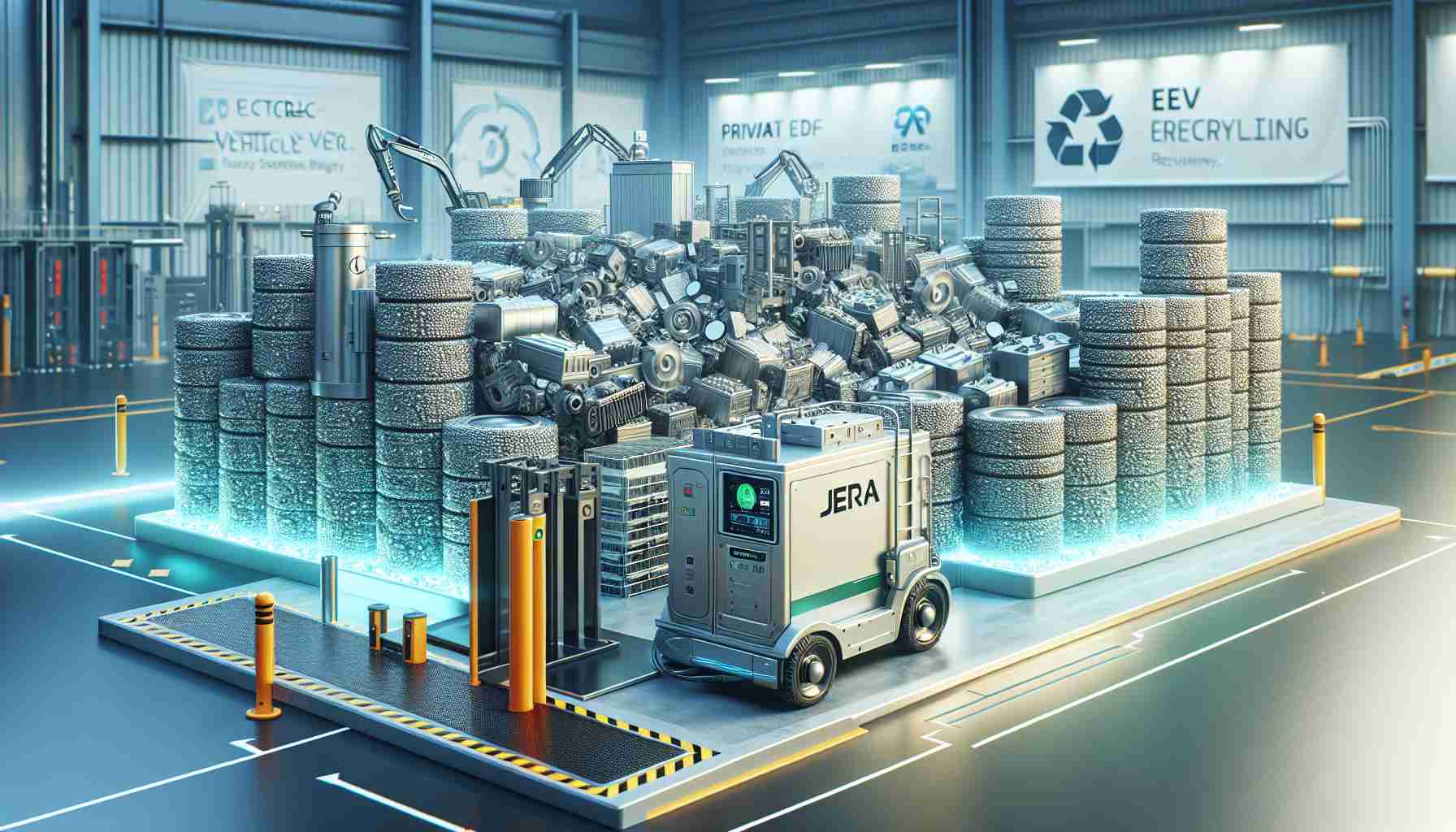Nikkei reported on October 7th that JERA, Japan's largest fossil fuel power company, is entering the field of retired electric vehicle (EV) battery recycling. JERA plans to establish a factory in Japan by the early 2030s to increase the recovery rate of rare metals from used batteries to around 90% and commercialize this technology. The company is currently developing a hydrometallurgical recycling process.
Additionally, JERA is considering entering the European market, which has stricter regulations on battery recycling.

Image Source: agogs.sk
A used EV battery contains about 200 kilograms of rare metals, equivalent to the batteries of thousands of mobile phones. Currently, 80% of Japan's second-hand electric vehicles are exported, and consequently, the rare metals contained in the batteries are also exported abroad. Therefore, Japan hopes to establish a battery recycling system to reduce its dependence on rare metal imports from China and other countries and to strengthen economic security.
In addition to JERA, other Japanese companies are also investing in battery recycling technology. Sumitomo Metal Mining plans to open two metal recycling plants by 2026. JX Advanced Materials also plans to improve its existing pyrometallurgical process to increase its recovery rate to 90%, aiming to extract 30,000 tons of nickel, cobalt, and other materials from used batteries annually by 2035. Toray is also developing a battery recycling technology with a recovery rate of 80% or higher.
Japan currently has pyrometallurgical recycling technology for used batteries, but the recovery rate of nickel and cobalt is only about 60%.
It is estimated that Japan currently needs to recycle 20,000 used EV batteries annually, and this number is expected to increase about sevenfold by 2030, reaching 150,000 units. With the development of net-zero carbon mobility, Japan's demand for EV batteries will continue to increase. Japan forecasts that its demand for lithium and cobalt will reach about 100,000 tons and 20,000 tons, respectively, by 2030. Therefore, the Japanese battery recycling market has great potential. It is predicted that by 2050, the size of Japan's battery recycling market will reach 2.4 trillion yen (16.1 billion USD).
Furthermore, it is reported that Japan also hopes to enter the European and American markets. Europe and the United States are leading in the field of rare metal recycling. The European Union passed legislation last year setting recycling rate targets for materials in electric vehicle batteries. The United States requires that a certain proportion of critical minerals in EV batteries must come from local sources or FTA countries for tax credits. Both Europe and the United States are important markets for Japan.
Additionally, China holds more than half of the global market share in the mining and smelting of rare metals such as lithium, cobalt, and rare earths. China's strengthened export control over these strategic materials also forces Japan to adopt battery recycling to ensure the security of raw material supply.
For more details on the lithium-ion battery Reuse, Repurposing & Recycling market, please contact the cleantX-Energy Research to request the "
2023 Lithium-Ion Battery Reuse, Repurposing & Recycling Market Economic Benefits Research Report". The cleantX-Energy Research can also provide customized reports on the battery Reuse, Repurposing & Recycling market market. If you have any further inquiries, please click the below to contact us.






